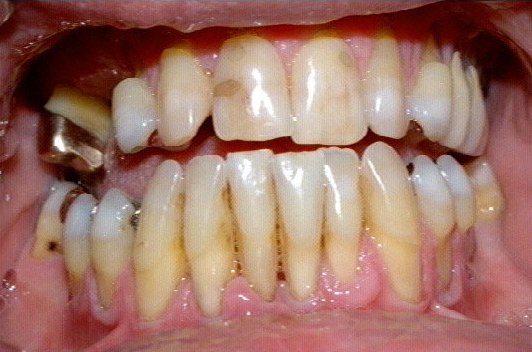I lost two of my lower molars to a very bad infection when I was younger. The dentist I had at that time made a bridge for me, and for years, that worked fine. I’m 55 now, and I decided I’d like to get implants instead because my friend got one and he loves it. But when I went to my current dentist, she said I’m not a candidate for dental implants. How can that be? When I asked her why, she said my health is not good enough. But I’m in good health. Do you think I should ask a different dentist?
Carl B.
Macon, Georgia
Hello Carl,
It’s hard to nail this down without more specific information about what your dentist meant when she said your health isn’t good enough, but let’s explore the types of health conditions that could be a barrier to successful dental implant treatment. Then we’ll take a look at low bone density and the reason some dentists don’t feel comfortable providing the treatment.
If your health really is the problem here, it will most likely fall into one or more of the following categories. Diseases of a chronic nature, like diabetes, immune-deficiency disorders, and hemophilia would make getting implants a high-risk proposition for you, mainly because there would be a higher probability of developing an infection around the tooth root form that is implanted into your jaw. Smoking also makes implant failure more likely. In fact the evidence shows that smokers experience dental implant failure at more than double the rate of non-smokers. Alcohol and other substance abuse also increase risk because associated health problems can jeopardize treatment and make it less likely that the follow-up care instructions can be followed. And it is not a good idea to get dental implants during pregnancy.
We’ll rule this last one out unless you forgot to add a final “a” to your name, Carl. If any of these conditions are present, you may well have your answer. However there are also two other areas we’ll explore, just to be thorough.
The jawbone under the two teeth you lost when you were younger is bound to be thinner because our body absorbs bone-building minerals from the jaw in the location of lost teeth. It is possible that your dentist felt that your bone density was too low, but we have to assume she would have said so if that were the case. And bone grafting is a standard treatment when the bone has thinned.
All that being said, it’s possible that your dentist doesn’t have the skill set required to provide dental implant treatment. Until recently, these skills and techniques were not taught in dental schools, and it takes years of postdoctoral training and experience to reliably provide dental implants.
You might talk to you current dentist to clarify her reasoning, and if she isn’t able to provide an answer that helps you understand, it would probably be a good idea to seek a second opinion. Perhaps you could seek out someone who specializes in dental implants.
In the mean time, there’s some great information beyond what we were able to explore in this post at Pumphrey Periodontics’ page entitled Am I a Candidate for Dental Implants?
This Blog is brought to you by Dr. David Pumphrey of Pumphrey Periodontics in Atlanta.










